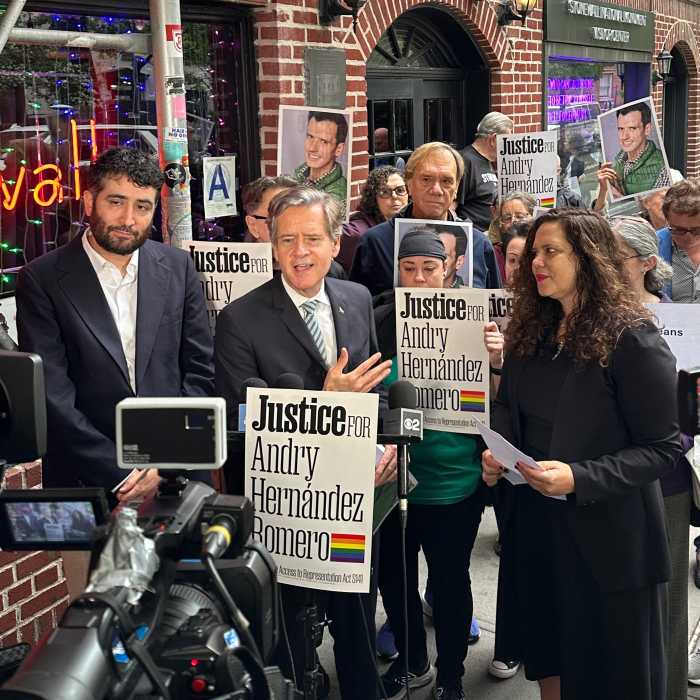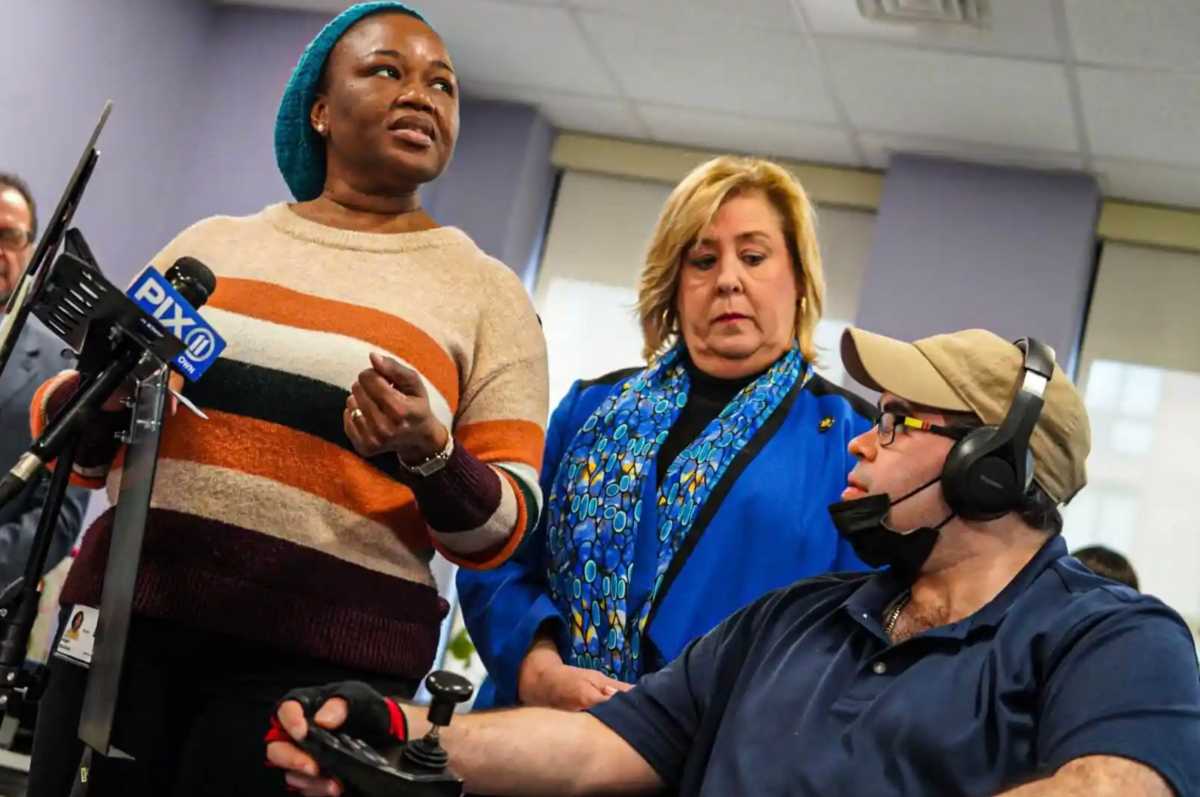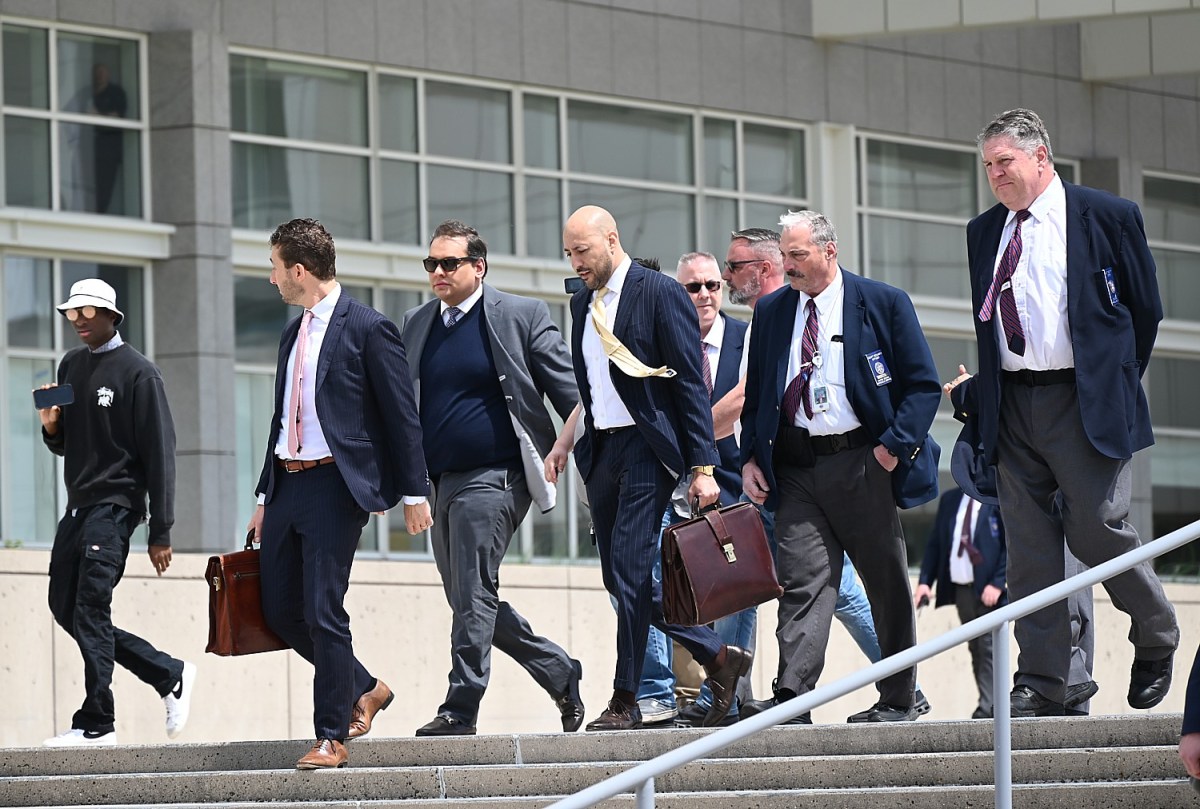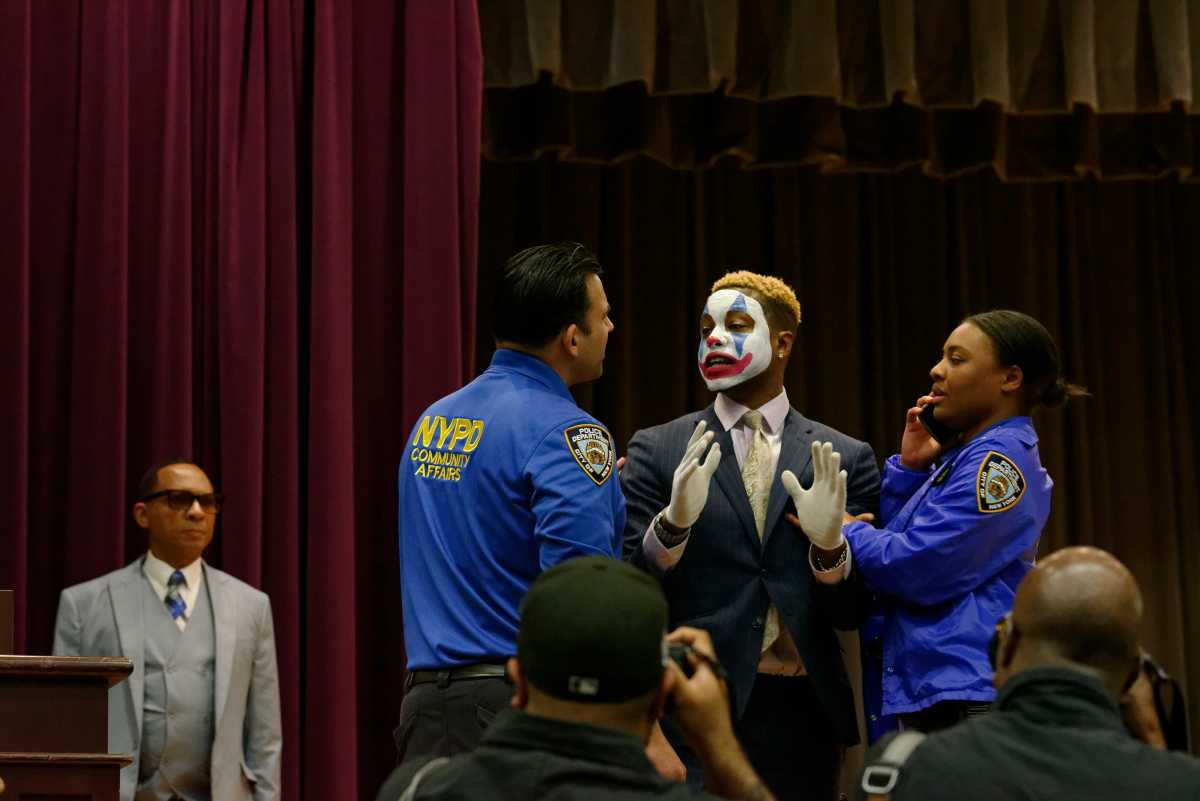Ithaca couples suffer setback; this case unlikely to be combined with New York City appeal
A New York Supreme Court justice has thrown out a lawsuit filed by 25 gay and lesbian couples suing the state for the right
to marry.
In a complicated twist to the case, reflecting the political complexities that the same-sex issue presents for localities throughout the state, Justice Robert C. Mulvey of upstate Tompkins County on February 23 rejected the lawsuit in which the City of Ithaca joined in support of the plaintiffs’ claims.
The city played an odd, dual role in this case. Last winter, as same-sex marriages in San Francisco were taking place, albeit temporarily, and Massachusetts prepared for fully legal marriages there, New Paltz Mayor Jason West, a Green Party member, began to perform same-sex marriages in New York. The issue soon exploded across the state.
Ithaca’s gay and lesbian couples seeking to marry approached their city government but City Clerk Julie Holcomb, relying on a preemptive order handed down by state officials, and refused to issue marriage licenses. However, Holcomb and other Ithaca officials, sympathetic to the same-sex marriage cause, informed the couples that the city would support a lawsuit arguing for their right to marry, even though Ithaca itself would be a defendant in the case.
The 25 same-sex couples, represented by attorneys Richard Stumbar and Mariette Geldenhuys, filed their lawsuit in Elmira, the county seat, against Holcomb, Ithaca, and the state’s health department, which administers the issuance of marriage licenses statewide, except in New York City.
As a result of the posture taken by Ithaca, the only person defending the marriage laws was Assistant Attorney Gen. James B. McGowan, who was representing Attorney Gen. Eliot Spitzer, himself a private supporter of same-sex marriage although he has issued an opinion declaring that state law does not currently allow for such marriages.
Mulvey concluded that Ithaca city officials lacked “standing” to seek any kind of relief from the state in this case, since they have no personal stake in the matter.
The plaintiffs argued that New York’s Domestic Relations Law already allows for same-sex marriage, given the gender-neutral tone of a key provision. That argument was swiftly rebuffed by Mulvey, who pointed out that even New York City Justice Doris Ling-Cohan, in her recent pro-marriage ruling, had found that the law does not permit same-sex marriages, given that other sections of New York law clearly contemplate unions of a man and a woman.
The more significant argument rejected by Mulvey was the contention that the refusal to issue same sex-marriage licenses violates the state Constitution’s guarantee of equal protection, as well as due process.
In addressing the equal protection argument, Mulvey immediately parted company from Ling-Cohan by asserting that as a trial judge he was bound to follow appellate precedent. In 1993, an appeals court rejected a claim by a surviving gay domestic partner on Long Island that he was entitled to a share in his deceased partner’s estate. Mulvey, contrary to Ling-Cohan, concluded that a rejection of the argument that denying marriage to same-sex partners violated the state’s constitution was integral to the Long Island ruling. Mulvey also rejected Ling-Cohan’s argument that the appellate decision was binding only on those trial courts within the same local jurisdiction.
Mulvey noted that the 1993 case had relied on the 1986 Bowers v. Hardwick case in which the U.S. Supreme Court upheld the Georgia sodomy law, but insisted that this made no difference because Lawrence v. Texas, the 2003 case that overruled Hardwick, did not establish any more stringent level of judicial review for sexual orientation bias cases. Accordingly, Mulvey imposed a relatively light standard in evaluating the statute and found that the plaintiffs failed to meet their burden of showing “that the Legislature was irrational in recognizing what is considered a unique and distinct social benefit derived from heterosexual marriage, to wit: natural procreation and child-rearing.”
Mulvey acknowledged that two courts, the Vermont Supreme Court and the Massachusetts Supreme Judicial Court, had rejected this reasoning, but pointed out that appellate courts in Arizona and Indiana have found that a rationality standard can still be applied post-Lawrence.
Mulvey declined to rule on the state’s argument that it was rational to keep New York marriage law consistent with the federal Defense of Marriage Act and the laws of other states that prohibit same-sex marriage.
Turning to the alternative due process constitutional argument, Mulvey rejected any contention that the state’s refusal to issue licenses to same-sex couples violated a fundamental right protected by either the state constitution or the U.S. Constitution’s Fourteenth Amendment.
Mulvey’s analysis on this point took the same approach that the Supreme Court took in Bowers, where the subsequent Lawrence ruling found that the constitutional question was framed at an inappropriately specific level. Gay marriage advocates argue that the question isn’t whether same-sex marriage is a fundamental right, but rather if denying marriage to same-sex couples violates their protected liberty interest under the due process clause. Having found that there is no fundamental right to same-sex marriage specifically, Mulvey applied the same rationality standard and rejected the due process argument. He also rejected without serious analysis the argument that the state’s policy violated First Amendment rights of expressive association.
Surprisingly, Mulvey failed to address whether Lawrence v. Texas itself would affect the due process analysis, which is surprising given that Lawrence is a due process case, and because in his Lawrence dissent, Justice Antonin Scalia had argued that one consequence of the majority’s reasoning was the potential demise of laws against same-sex marriage.
It is likely that this case will be appealed to the Appellate Division in the Third Department. Because the plaintiffs included a statutory claim in their case, it may not be possible to consolidate this with the New York City case if the Court of Appeals grants that case direct review when it reconvenes later in March, because the special rule for by-passing the Appellate Division normally applies only to cases that present only constitutional, as opposed to statutory, questions.
gaycitynews.com



































